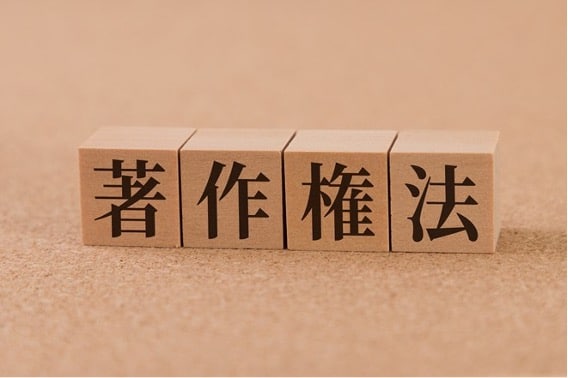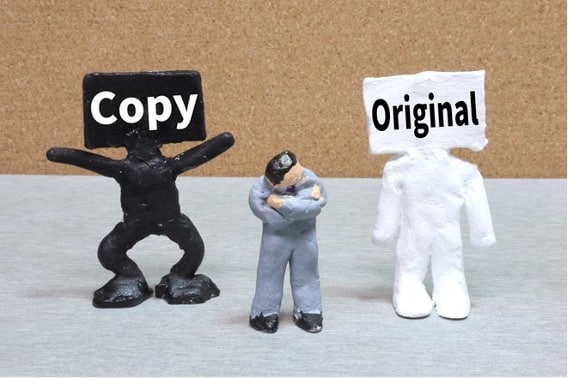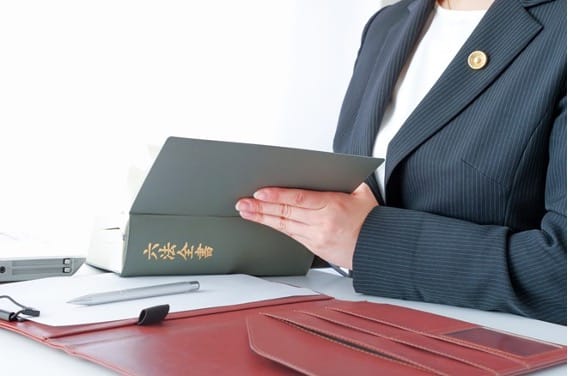How Are Copyrights Protected Abroad? An Explanation of Two International Treaties

Even if you have knowledge of copyright laws within Japan, the approach to copyright overseas can significantly differ. Since “Copyright Law” varies by country, it is crucial to understand and comply with the copyright laws of the country where you intend to use copyrighted material.
This article will explain the basics of copyright perspectives abroad and discuss two treaties. Please refer to this before using copyrighted material overseas.
What is Copyright Law?

Copyright is a right granted to the creator of a work. It exists to protect the interests of creators from unauthorized reproduction and use of their works, including the risk of secondary use without permission through various media such as the internet.
Creators can refuse the use of their works by others and can also permit their use, whether for a fee or free of charge. Furthermore, it is possible to allow the use of works under certain conditions.
According to Article 2, Paragraph 1, Item 1 of the Japanese Copyright Law, a work is defined as “something that creatively expresses an idea or emotion.” This primarily includes literature, academia, art, and music. For example, papers, music, novels, films, photographs, paintings, animations, and games fall under this category.
Source: Agency for Cultural Affairs | “Works – Article 2 (Definition)”[ja]
It is defined that copyright is automatically granted at the moment of creation of the work, without the need for registration with any institution.
In the age of the internet, copyright has become even more relevant, and the importance of protecting copyright has increased. When disseminating information, there is also a risk of infringing on others’ copyrights through unauthorized reproduction or secondary use, making an understanding of copyright essential.
Understanding Copyright Laws Abroad

Many of you may wonder how works published in Japan are treated in foreign countries. In this section, we will delve into the concept of copyright laws, focusing primarily on the perspective of copyright laws abroad.
Copyright Knows No Borders
In Japan, copyright protection for works automatically extends overseas. This is because copyright knows no borders.
There are two main treaties that protect copyright worldwide: the “Berne Convention” and the “Universal Copyright Convention.”
Japan is a member of these treaties, with 168 countries participating in the Berne Convention and 100 countries in the Universal Copyright Convention. The existence of these treaties ensures that copyright laws are similarly upheld in participating countries.
Conversely, in countries that are not members of these treaties, copyrights protected in Japan may not be effective at all. Notably, in countries like Iran and Ethiopia, which are not parties to these treaties, Japanese copyrights may have no significance whatsoever.
However, aside from these copyright treaties, there is also the TRIPS Agreement, an international agreement aimed at protecting intellectual property rights (intellectual ownership rights) related to trade. Copyrights can be effective in countries that are members of this agreement as well.
The Shorter Protection Period Applies
The copyright protection period defined by Japanese Copyright Law extends for “70 years after the author’s death.” However, different protection periods are established in other countries.
For instance, countries in the European Union (EU), the United States, and Australia have the same 70-year period after death as Japan, but in the United Arab Emirates, Saudi Arabia, Pakistan, and other Middle Eastern countries, as well as Taiwan and Egypt, the period is shorter at 50 years after death. In Mexico, the period extends to 100 years after death, the longest duration.
While copyrights are not limited by national borders, the duration of protection varies significantly from country to country.
On the other hand, each treaty establishes a minimum protection period as a base. The minimum copyright protection periods set by each treaty are as follows:
| Treaty Name | Protection Period |
| Berne Convention | Minimum of 50 years after death |
| Universal Copyright Convention | Minimum of 25 years after death |
Under the Berne Convention, a minimum protection period of 50 years after the author’s death is established.
The Universal Copyright Convention sets a protection period of 25 years after the author’s death, but this is merely the minimum. Countries can opt for longer periods. The treaties stipulate that, in principle, the protection provided domestically must also be extended to works from other countries.
For foreign works, even if the protection period in the country of origin is 25 years after death, within Japan, the copyright for the same work must be protected for 70 years after death.
Similarly, for Japanese works, if another country has established a protection period of 25 years after death, then that country will apply a copyright protection of 25 years after death.
For example, Egyptian works are protected under Japanese Copyright Law in Japan, and Japanese works are protected under Egyptian Copyright Law in Egypt.
Therefore, since the copyright protection period can be shorter depending on the country, it is important to be cautious when publishing works abroad.
Standards for “Works” Vary by Country
Caution is necessary when dealing with the handling and standards of works overseas. Even if rights are protected as works within Japan, it does not guarantee the same protection abroad. Even among countries that are members of the treaties mentioned above, the definition of what constitutes a work can differ significantly.
The Berne Convention adopts the principle of “formalities not required,” which means that “no formal procedure, such as registration, deposit of copies, or copyright notice, is necessary to enjoy and exercise copyright and related rights.” This principle is effective in copyright laws in many countries, including Japan.
However, this principle was not applicable in the United States in the past, where copyright was not recognized without the display of the “©” copyright mark.
This was because, until recently, the United States followed a system of “formalism,” where copyright was recognized only upon registration with a government agency. It was not until the first year of Heisei (1989) that the United States finally joined the Berne Convention and adopted the principle of no formal requirements.
Source: Agency for Cultural Affairs | Protection of Foreign Works, etc.[ja]
Membership in the Berne Convention and the Universal Copyright Convention, as well as the regulations for recognizing works, vary by country. Therefore, it’s advisable to research the copyright laws of the target country in advance.
Two International Treaties on Copyright

Several international treaties facilitate the promotion of reasonable and consistent protection of works across countries through copyright law. These treaties establish minimum standards of protection, and member countries enforce these within their jurisdictions, thereby safeguarding copyrights beyond borders.
Here, we will discuss two representative treaties.
The Berne Convention
The Berne Convention is one of the oldest and most significant international treaties concerning copyright protection.
Adopted in Bern, Switzerland, in 1886, primarily by European countries, this treaty has undergone numerous amendments and is ratified by about 180 countries today. Japan joined the treaty in 1899, and the United States finally became a member in 1989.
Key features of the Berne Convention include the “principle of national treatment” and “no formalities” principle.
Principle of National Treatment
The Berne Convention emphasizes granting and protecting equivalent rights to foreign authors and works, just as it would for works created by nationals within the country.
No Formalities Principle
The Berne Convention establishes the principle that copyright does not require any formal procedure or prerequisites. Copyrights arise automatically, meaning that works are protected by copyright from the moment of their creation.
Universal Copyright Convention
The Universal Copyright Convention was created in Geneva, Switzerland, in 1952 and came into effect in 1955. Initiated by UNESCO, it is also known as the UNESCO Convention. Japan signed this treaty in 1977.
At the time the Berne Convention was established, countries like the United States and those in Central and South America, which had already enacted their copyright treaties, adopted “formalities” (requiring registration for copyright to arise) rather than the “no formalities” principle of the Berne Convention. Thus, this treaty served as a bridge between member countries of the Berne Convention.
As a result, works from countries that are members of the Universal Copyright Convention can be protected in formalities-adopting countries without registration, simply by marking the author’s name, year of publication, and the © symbol.
Promoting Copyright Protection Abroad

Finally, we introduce the Agency for Cultural Affairs’ project to promote copyright protection overseas.
Development of Copyright Systems
The Agency for Cultural Affairs is working on the development and support of copyright systems in the Asia-Pacific region (Project for the Promotion of Copyright System Dissemination in the Asian Region).
Specific initiatives include:
- Hosting local seminars on copyright systems
- Organizing international conferences on copyright
- Implementing training programs in Japan to support system development
Furthermore, the agency actively engages in creating international rules and addressing global copyright issues. Efforts include participating in negotiations for economic partnership agreements and discussions on the WIPO Broadcast Treaty, all aimed at protecting domestic copyrighted works.
Reference: Agency for Cultural Affairs | Promoting Copyright Protection Abroad[ja]
Support for Strengthening the Exercise of Rights
The Agency for Cultural Affairs requests the strengthening of enforcement against copyright infringement through intergovernmental efforts, especially targeting countries where infringement of domestic content is prevalent. Regular intergovernmental consultations are conducted to ensure the proper application of laws.
In addition, the agency promotes the development of an environment conducive to copyright protection by conducting training seminars for enforcement agency personnel, creating handbooks on measures against copyright infringement abroad, and establishing consultation services.
For more details, please see the link to the “List of Handbooks on Measures Against Copyright Infringement (Piracy).”
The list includes methods for copyright infringement measures in various countries and reports on the enforcement status of copyright laws.
Reference: Copyright Infringement (Piracy) | List of Handbooks on Measures[ja]
Summary: For Cross-Border Copyright Issues, Consult a Specialist

It is a fact that the concept of copyright varies from country to country. There is a need to thoroughly research the copyright situation of the target country in advance, including its status of accession to various treaties and its rules. Moreover, when the target country involves multiple nations, it is essential to consider the possibility of handling becoming more complex.
When it comes to handling copyright issues abroad, we highly recommend consulting with a specialist.
Guidance on Measures by Our Firm
Monolith Law Office is a legal office with extensive experience in both IT, particularly the internet, and law. In recent years, global business has been expanding increasingly, and the need for legal checks by experts is growing more than ever. Our firm provides solutions related to international legal affairs.
Areas of practice at Monolith Law Office: International Legal Affairs & Overseas Business[ja]





















